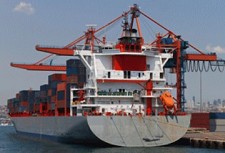7/7/2014 4:47:00 PM
HEADLINES
Fastener Importers Doubt There Will Be Extended West Coast Dockworker Strike
West Coast dockworkers are still on the job despite expiration of their union contract with the Pacific Maritime Association.
Fastener importers are confident there will not be a long strike by West Coast dockworkers.
“The parties involved have always worked it out in the past. Everybody has too much to lose if there is a strike,” Bob Sachs of XL Screw told FIN. “Hopefully there will not be a strike.”
“Historically such strikes, if they occur, last one week,” JungXu of Brighton-Best International explained.
“At two weeks, the government gets involved to get the parties to arbitrate, and at one month, the government forces resumption of activities.”
“We carry about 10 months of inventory unhand,” JungXu noted. “We’ve generally found such inventory positions shelter BBI quite well from any labor disputes at the port.”
Brighton-Best also can use Texas, Georgia and New Jersey ports.
In a joint statement, the International Longshore & Warehouse Union and the association stated that both sides “understand the strategic importance of the ports to the local, regional and U.S. economies, and are mindful of the need to finalize a new Coast-wide contract as soon as possible to ensure continuing confidence in the West Coast ports and avoid any disruption to the jobs and commerce they support.”
Bloomberg News reported that unlike previous labor disputes, both the ILWU and the PMA are interested in finding a quick resolution. George Lovell, of the University of Washington, says there “hasn’t been a lot of saber-rattling on either side,” adding that “this is a climate in which both sides have an interest in getting this settled.”
Bloomberg News noted ports pay higher than the national average.
Rob Harris, managing director of the Industrial Fasteners Institute – which represents North American fastener manufacturers – noted a long strike could affect automotive transplants, Walmart, Cosco and such companies.
A prolonged labor strike by 13,600 dockworkers at 30 ports from San Diego, CA to Bellingham, WA, could cost the U.S. economy $2.5 billion a day, according to the National Association of Manufacturers and the National Retail Federation.
In a study for NAM and NRF, economists at the University of Maryland, found the “economic repercussions of a port closure would grow with time.”
According to the Maryland study, a five-day stoppage would reduce GDP $1.9 billion a day; disrupt 73,000 jobs; and cost the average household $81 in purchasing power.
A 10-day stoppage would cut GDP $2.1 billion a day; disrupt 169,000 jobs; and cost households $170 in purchasing power.
A 20-day stoppage would reduce GDP $2.5 billion a day; disrupt 405,000 jobs; and cost the average household $366 in purchasing power.
“Any supply chain disruption, whether it’s a port slowdown or outright stoppage, would cripple international trade, stymie supply chains and hurt domestic employment and consumer spending,” NRF president Matthew Shay said.
A port closure would delay back-to-school and holiday shipments, which could could “significantly drive up consumer prices.”
“Manufacturers depend on the ability of West Coast ports to efficiently move cargo valued at 12.5% of U.S. GDP,” NAM president Jay Timmons said. “The parties must come to an agreement before the current contract expires.”
The last major West Coast port disruption occurred in 2002, when management locked out dockworkers for 10 days until then-President George W. Bush ordered the two sides back to work under the Taft-Hartley Act. ©2014 GlobalFastenerNews.com
Related Stories:
• U.S. Fastener Exports Double Import Rate
• 2014 FINdex Sees Modest First-Half Growth


Share: